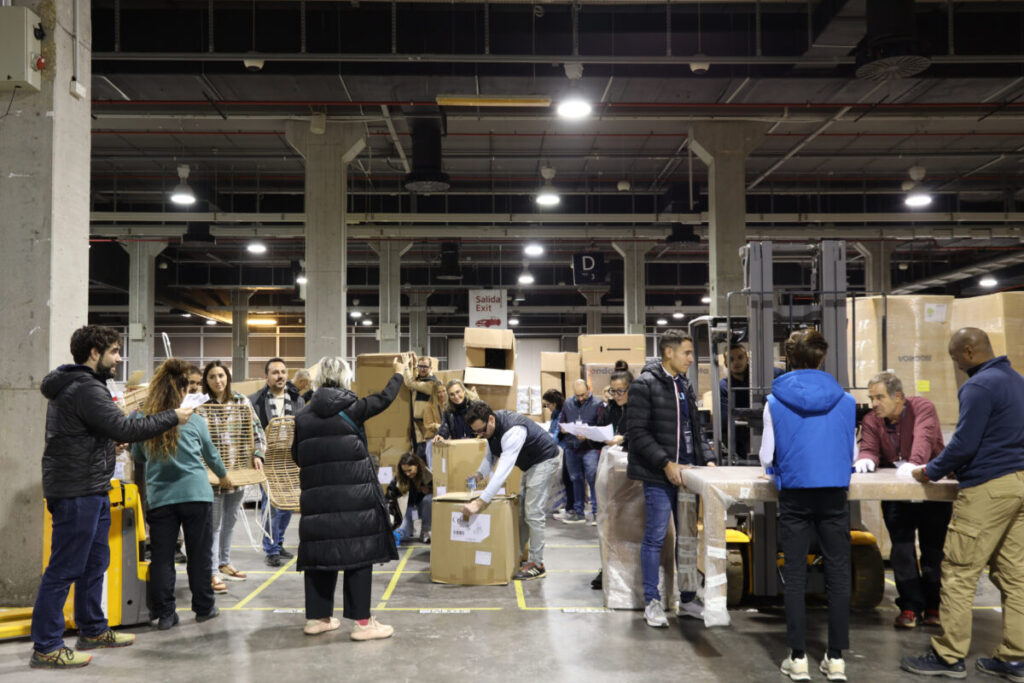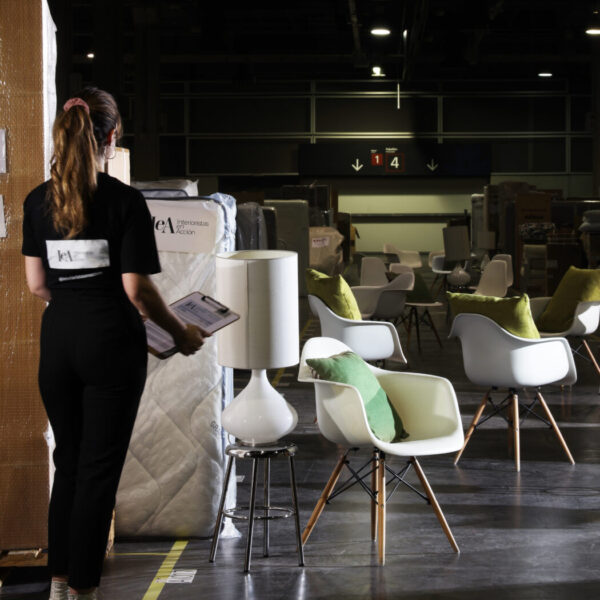On October 29, 2024, a "cold drop" struck Valencia and its region, sweeping away homes, leaving thousands of families homeless, and disrupting lives. In the face of this disaster, more than 200 professionals chose action over shock. United under the banner Interioristas en Acción, they rehabilitated damaged housing, transforming solidarity into a concrete tool for reconstruction and an inspiring model.
Index IA: Library of Mediterranean Knowledge
Interior designers rehabilitate the homes of thousands of disaster victims
22-med – September 2025
• A simple WhatsApp message triggered a chain of solidarity to rebuild Valencia after the DANA.
• More than 200 design and architecture professionals restored hope to over 1,600 affected families.
#spain #valencia #solidarity #architecture #mediterranean #climate
The effects of this DANA (Isolated Depression at High Level, synonymous with cold drop) were devastating: destroyed homes, families without resources, and even today, reconstruction sites are still ongoing. In response, Interioristas en Acción - Interior designers in action - was born, a citizen movement bringing together more than 200 professionals determined to restore homes and revive hope.
It all started with a simple WhatsApp message. A discussion among colleagues transformed into a support network led by experts in interior decoration, design, and architecture. “What could we do? Well, I would do this, you would do that, and together we decided to do what each of us knew how to do,” recounts Pilar Civis, communications manager of the initiative and director of the magazine Interiores.
From a WhatsApp group to the warehouses of Feria Valencia
Faced with a disaster that everyone was discovering, helpless, on their screens, the mobilization was immediate. “A willingness to collaborate, a need to help. The despair we felt when seeing what was happening. And the necessity we had to lend a hand,” adds Civis.
Solidarity quickly surpassed the initial circle. Brands joined the movement, alongside hundreds of professionals from across the country. “A flood of supportive responses, absolutely from all the brands we knew and with which we usually work,” continues Civis. In light of this momentum, a storage space needed to be found. Feria Valencia then graciously made 12,000 m² of its facilities available, while the FDI Foundation (Foundation for the Promotion of Development and Integration) ensured the monitoring and transparency of operations.
Orderly and transparent management behind the project
Each donation followed a precise circuit: “Upon arrival at the Feria Valencia warehouse, they were registered in an internal system, classified by product type (furniture, appliances, textiles, materials, etc.) and labeled with a unique barcode,” explains Marta Alejo, manager within Interioristas en Acción, a specialist in organizing strategic systems for interior design firms. Thanks to this process, it was possible to identify each item, its origin, its condition, and the beneficiary family. “In this way, we ensured that no donation was lost and that every resource reached a affected family directly,” she specifies.
More than a thousand volunteers mobilized for distribution, supported by the Army. The major challenge was to respond to urgent needs, coordinating the flow of materials, transport, and volunteers, as requests poured in. The support of over 160 furniture, appliance, and materials companies proved decisive.
A real impact on affected households
Over the months, Interioristas en Acción received about 7,000 requests for help, some duplicated, thus reduced to 5,000 valid cases. “We managed to re-equip 1,602 families, which represents about 4,806 people (calculating three per household),” reports Alejo. However, the system had to register between 3,400 and 4,000 additional requests, which remained pending due to insufficient administrative resources. Many other households could not register before the form closed.
Volunteers faced painful situations: isolated elderly people, grieving families. Civis particularly remembers a woman with two children — a teenager and a little girl — who had lost everything. “Getting a computer for her son, allowing him to work again from home, represented a complete reset of her life. She regained her job and was able to provide a balanced and serene, in a word normal, existence for her children,” she confides.
A reproducible aid model
After the emergency phase, the initiative continues, but at a slower pace, with fewer products available. Its main highlight took place from November 2024 to May 2025, until the end of the availability of the Feria Valencia premises. But for Civis, these actions carry a future beyond this crisis: “It seems to me that the movement started very well and can have a lot of outlets and connections with other commitments and other disasters, which, unfortunately, we continue to see happening,” she says. The challenge remains to maintain the support of major brands and to obtain stronger involvement from administrations.

Cover photo: all the brands with which the members of the collective usually work mobilized © Interioristas en Acción
